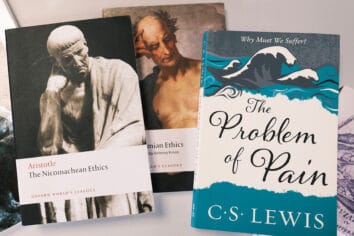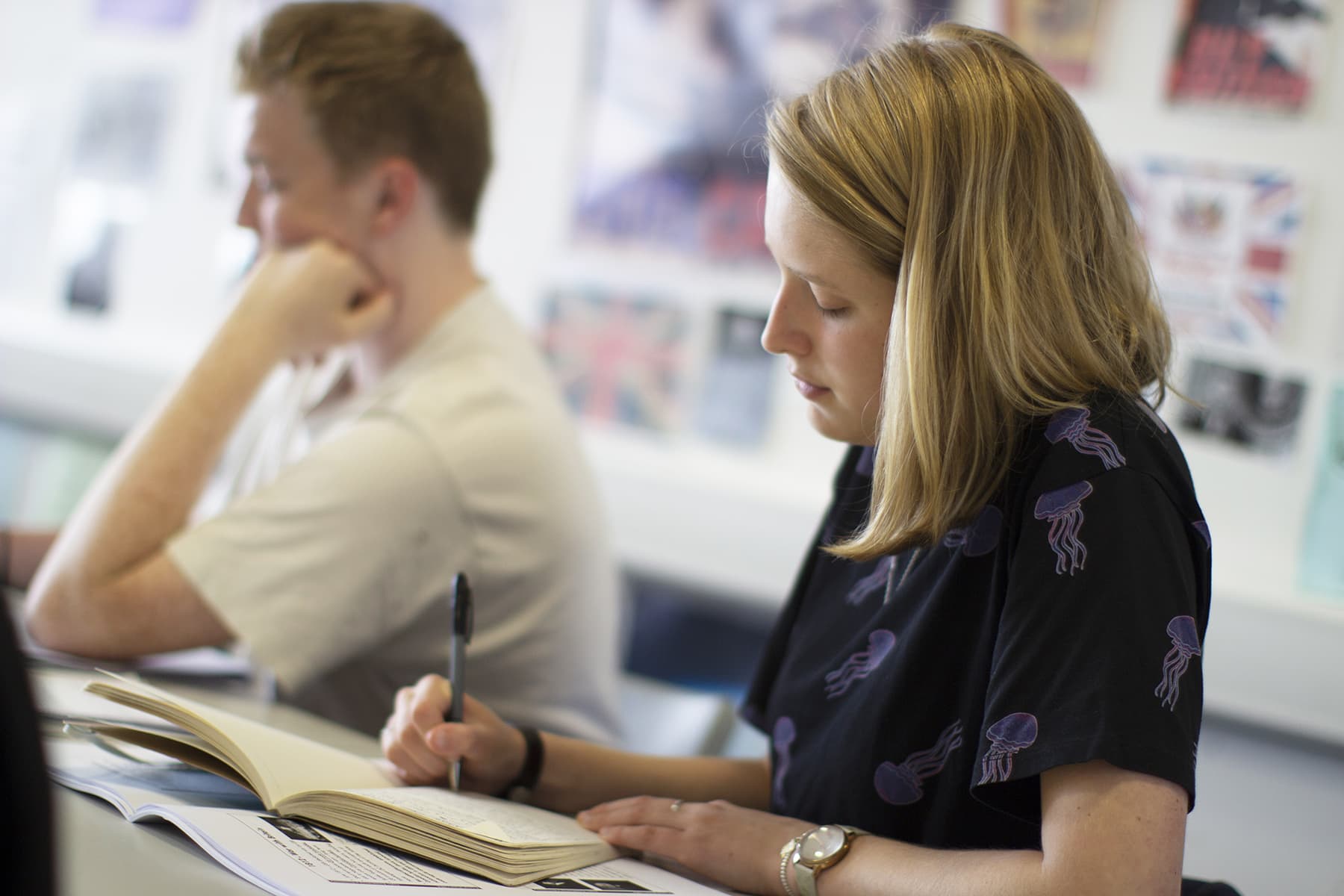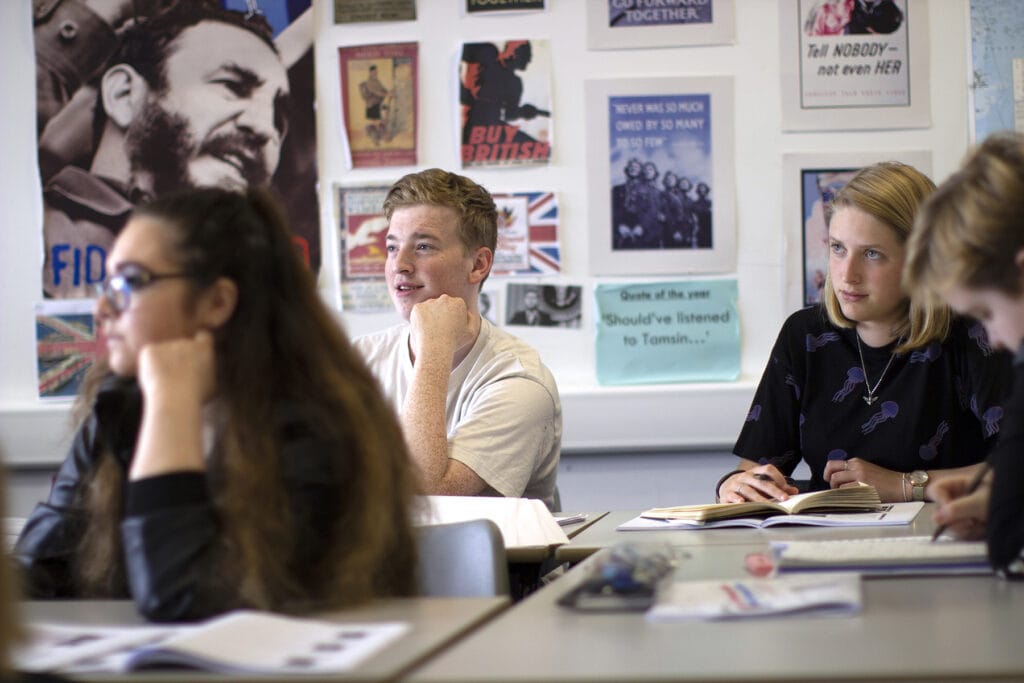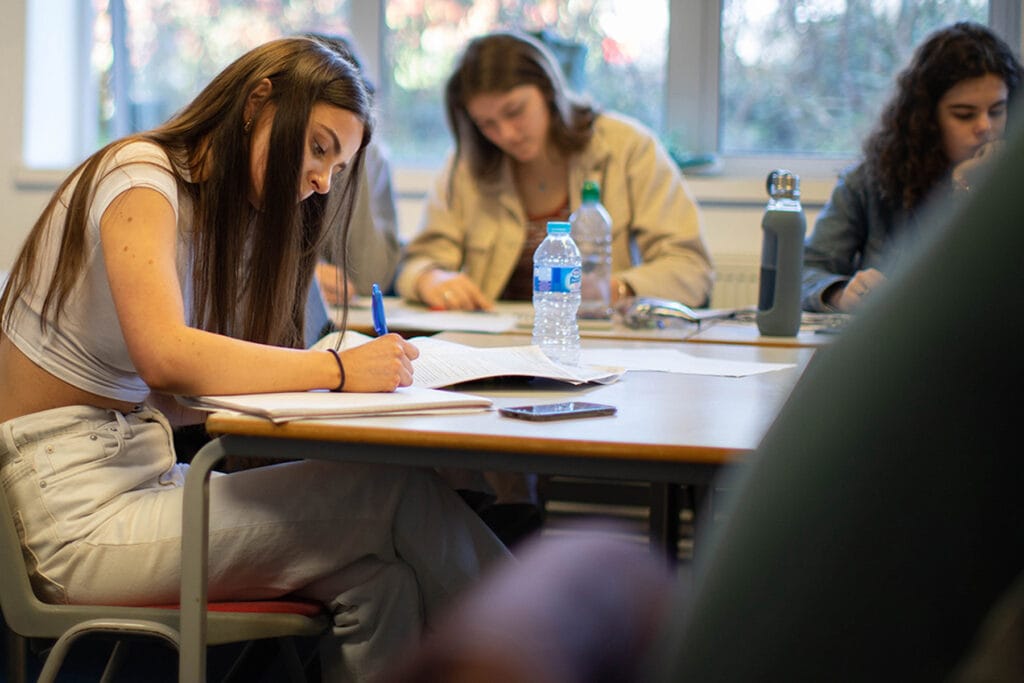New students starting in September: You can find more information about Induction days and submitting your GCSE results in our Start of Year Guide.
WHY CHOOSE THIS COURSE?
Within this course you will consider how Religion, Ethics and Philosophy are intertwined within culture, law, medicine, social care, environment, and politics. This course will provide you with a range of transferable skills essential for the modern workplace, such as essay writing, analysis and evaluation. Students are trained in the application of rigorous logic through the development of a wide variety of skills including independent critical thought, analytical reasoning, and persuasive communication. Lectures often involve discussion and debate following learning on the perspectives of key philosophers and theologians.
You must be prepared to undertake at least 4 hours of independent study per week. The course has some topic areas which develop from GCSE Philosophy and Ethics, but we do not assume that you have any detailed knowledge about religious traditions or ethical views. The course leads to the EDUQAS A Level in Religious Studies.
Apply for this course
Start date: 08/09/2025
TOP COURSE HIGHLIGHTS
Engaging debates
Revelatory facts
develop invaluable skills
friendly atmosphere

Philosophical dilemmas
The Religious Studies course helps you to examine, understand and explain belief systems.

Multiple perspectives
Explore and understand the origins of ethical thought in Western civilisation from its origins in Ancient Greece to our 21st Century philosophers.

Playing with concepts
Adopt an enquiring, critical and reflective approach to the study of religion. Reflect on and develop your own values, opinions and attitudes in the light of this study.
WHAT WILL I LEARN?
Within the course we explore three topic areas, Philosophy of Religion, Ethics, and Christianity.
Philosophy of Religion
In this unit, you will be given the opportunity to discuss the basis of our beliefs in regards to the origin of the universe, the problem of evil, the authenticity and objectivity of religious experience. In the second year, you will explore challenges to religious beliefs from psychologists such as Jung and Freud, you will question our perception of God as ‘male’ and compare and contrast different definitions of miracles.
Ethics
In this unit you will learn how to evaluate several different ethical theories and apply moral thinking to real life situations. You will get the opportunity to discuss issues such as abortion, euthanasia, immigration, capital punishment, animal testing, just war. You will debate whether we are free to make our own moral choices or, as the Libet experiment shows, we are, in fact, conditioned by our neurophysiology, our beliefs and our upbringing.
Study of a religion: Christianity
You will explore selected themes from Christian tradition and have the opportunity to evaluate long standing beliefs and examine their rationale from a variety of perspectives. Was the world created by God or was it the result of the Big Bang? Was Jesus’ resurrection an historical fact or an ‘invention’ to encourage people’s faith in Jesus? Was Jesus the Son of God or a rebel peasant who caused the anger of the Roman authorities? Should the church increase the role of women in the clergy?
WHERE WILL IT TAKE ME?
Careers: Throughout the course you will develop a wide range of invaluable skills that will enable you to succeed within A Level Religious Studies, your studies beyond college and a plethora of future careers including careers in Law, Politics, Teaching, Health care, Counselling, Youth/Charity worker, Diplomacy, International Relations and the Police Force.
ASSESSMENT ARRANGEMENTS
You will be formally examined on each unit that you study. The examinations are at the end of the second year and comprise of:
Component 1: A Study of Religion
Written examination: 2 hours 33⅓% of qualification (100 marks)
Component 2: Philosophy of Religion
Written examination: 2 hours 33⅓% of qualification (100 marks)
Component 3: Religion and Ethics
Written examination: 2 hours 33⅓% of qualification (100 marks)
ENTRY requirements
You should be able to offer at least GCSE grade 6 in English Language and at least grade 5 in Mathematics plus at least three other GCSEs at grade 4 and above. It is not a requirement to have taken Religious Studies or PRE at GCSE. You will need to be a confident reader, able to write fluently and have good factual recall. Above all you should have a real interest in the subject.
INFORMATION & SUPPORT
Your achievement in this subject is dependent upon excellent attendance, punctuality and effort. You will learn in a friendly atmosphere, using a variety of assessment methods: You will be assessed regularly on written essay work that is conducted either as homework or under timed conditions in class and given feedback on your progress. Discussions are a vital part of our assessment process and you will be expected to contribute to those and reading exercises. Personal research and reading of modern scholarship is also a requirement. You will review your own performance in a 1:1 session with your tutor. You will undertake mock examinations on each unit in advance of your final exams.
If you have any questions, please contact Dr Eleni Lorandou, Religious Studies Lead, at elenil@truro-penwith.ac.uk
Meet the staff, tour the campus and find out about life as a student at one of the best colleges in the country.








